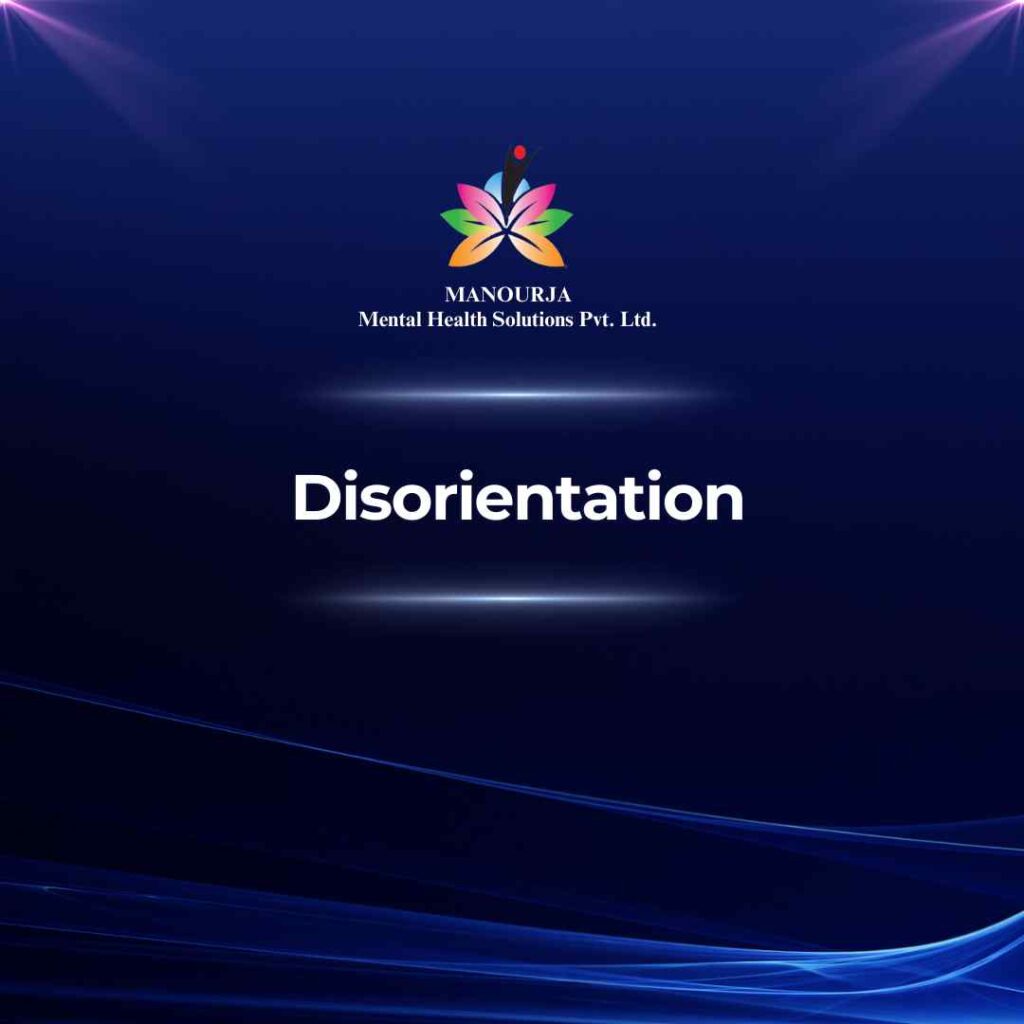Disorientation

Disorientation refers to a state in which a person loses their sense of direction, time, or place, and may even be unsure of their own identity. This condition can manifest in various ways, such as confusion about the current date, inability to recognize familiar environments, or difficulty in identifying oneself and others.
Disorientation as a Sign and Symptom of Mental Illness
Disorientation is a significant symptom often associated with various mental health and neurological conditions. When someone is disoriented, they may:
- Lose Track of Time: They might be unable to tell the current date, day of the week, or time.
- Confuse Places: Familiar places may seem strange or unknown, and they might not recognize their own home.
- Forget Identities: They could have trouble remembering who they are, recognizing family members, or recalling important personal details.
- Experience Cognitive Confusion: Their thoughts may be jumbled, making it hard to follow conversations or complete tasks.
Mental Illnesses Where Disorientation is Present
Disorientation can be a symptom in several mental health and neurological disorders. Here are some key conditions where disorientation might occur:
Dementia is a broad category of brain diseases that cause a long-term and often gradual decrease in the ability to think and remember. Disorientation is a common symptom, especially in conditions like Alzheimer’s disease.
Delirium is an acute, often sudden change in mental status characterized by confusion, disorientation, and an inability to focus. It can be caused by infections, medications, or severe illnesses.
- Traumatic Brain Injury (TBI)
Individuals who have suffered a Traumatic Brain Injury may experience periods of disorientation as their brain heals. This can include confusion about their surroundings, time, and identity.
In Schizophrenia, especially during acute psychotic episodes, individuals may experience disorientation due to delusions and hallucinations that disrupt their perception of reality.
During severe manic or depressive episodes of Bipolar Disorder, some individuals may experience disorientation, particularly if the episode includes psychotic features.
In cases of Severe Depression, individuals might experience cognitive symptoms such as disorientation, particularly if their depression includes psychotic features.
Substance Use Disorders, particularly involving alcohol or drugs that affect the brain, can lead to episodes of disorientation. Withdrawal from certain substances can also cause disorientation.
Individuals with Post-Traumatic Stress Disorder may experience disorientation during flashbacks or severe anxiety attacks, where they might feel detached from their current time and place.
- Encephalopathy
Encephalopathy refers to any diffuse disease of the brain that changes brain function or structure. This can include metabolic or infectious causes, and often presents with disorientation.
Conclusion
Disorientation is a crucial symptom that can indicate a range of mental health and neurological conditions. Understanding its presence in these disorders helps in the accurate diagnosis and effective treatment of individuals experiencing this disconcerting symptom.
At MANOURJA, we believe in the transformative power of counseling. Our experienced therapists offer a safe and supportive space where you can explore your thoughts, emotions, and challenges. Through personalized counselling sessions, we’ll work together to develop coping strategies, build resilience, and achieve lasting positive change. Discover the path to a healthier, happier you with MANOURJA counselling services.
MANOURJA Rehabilitation Services
At MANOURJA, we’re dedicated to helping you in rebuild your life, after difficult times. Our rehabilitation services focus on understanding what you need to move forward, whether you’re recovering from addiction, trauma, or any psychological – social challenges. We create personalized plans, that are all about helping you, regain your strength and find hope again. With a caring team by your side, you’ll have the support to make real progress and take steps toward a brighter, healthier future.
